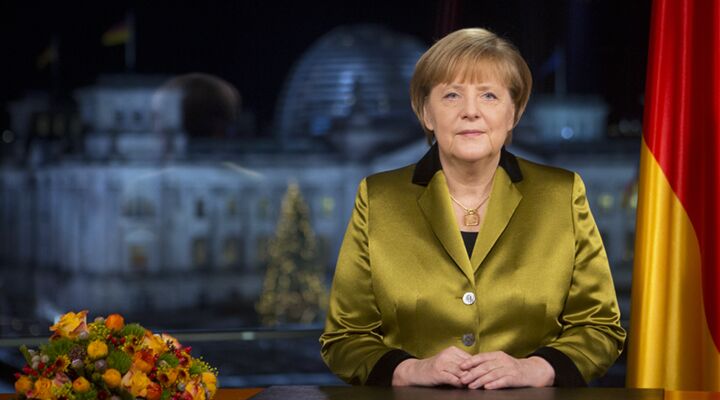
Ukraine Crisis: The World Waits on Germany
A moment of crisis can reveal a lot about the world. Subtle and gradual changes that developed over years become obvious. The biggest revelation from the Ukraine crisis is that we are now living in a post-American world. Nobody is scared of America’s might anymore, so they do exactly what they want. It was the subject of the January issue of the Trumpet magazine, but now it is discussed throughout the news media.
However, another major shift revealed in the crisis is that Germany, not America, is now the leader of the free world, at least when it comes to dealing with Russia.
“Angela Merkel Plays Central Role in Russia Diplomacy Over Crimea,” a Spiegel Online headline proclaimed. “Ukraine Crisis: Keep Your Eyes on Angela Merkel,” declared another, this time on The New Yorker’s website.
“Germany is now the pivotal player in the Ukraine crisis,” Foreign Policy wrote. “And the world is watching.” Their article continues:
Not so long ago, of course, it would have been the United States calling the shots, with Germany following along like the humble, reliable ally it had been. But the tables are turned. Washington is paying the price for having neglected Europe for years, tapping the phones of the Continent’s leaders rather than engaging them in serious consultation and policy making.
As for the European Union, its foreign-policy-making apparatus is still not up to the task of diffusing such a high-level crisis involving the transgression of state sovereignty in Europe itself. So it falls to Germany, the de facto leader of the European Union today—another role it never wanted.
As many of these articles point out, just a few weeks ago Germany proclaimed that it was adopting an aggressive new foreign policy. The world is waiting to see what that looks like.
Peter Oborne, one of the Telegraph’s star columnists, captured the drama and importance of what has happened. “The German chancellor has put an end to talk of economic sanctions, and become the main interlocutor with President Putin,” he wrote. “This marks a vital turning point in the post-war world. Germany has long been the dominant economic power in the European Union. With Mrs. Merkel in charge, it is now turning that economic power into diplomatic power” (emphasis added throughout).
“This week, this remarkable stateswoman has taken a massive step towards placing the Russian-German partnership back at the heart of Europe—an achievement that it has traditionally been an objective of British foreign policy to prevent,” he concluded. “But then, unlike Britain, both Merkel’s Germany and Putin’s Russia still have a clear vision of their role on the world stage.”
Part of Germany’s clout is unique to Russia. As one of Russia’s top trading partners and a key source of the foreign technology and know-how that Russia needs, it has a unique leverage with Vladimir Putin. Mrs. Merkel is believed to be a world leader that Putin takes seriously.
But, as Oborne points out, Germany’s position also stems from Germany “turning that economic power into diplomatic power”—a more general shift that applies far beyond Russia. If something big happens in Europe or Europe’s neighborhood, it is no longer America’s reaction that matters most. It is Germany’s.
This doesn’t mean that Germany has necessarily handled this particular crisis any better than America, or that Germany will make the right decisions in the days and weeks ahead. It merely reveals a shift that has already happened.
As Oborne also points out, this is a shift that British foreign policy has tried to stop for centuries. It presented a clear danger to Britain over the last few hundred years and, as Brad Macdonald wrote earlier this week, human nature and geography have not changed—it is still a dangerous development today.
The rise of Germany and fall of America show that we have already entered a new world. Some believe this is a good thing, but consider the danger a German-dominated Europe poses. For more information, read “The World’s Next Superpower.”
